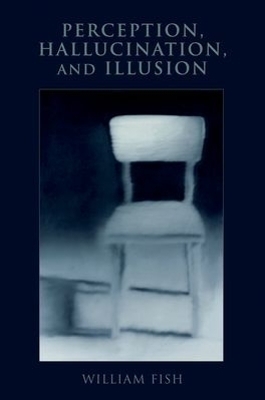
Perception, Hallucination, and Illusion
Seiten
2009
Oxford University Press Inc (Verlag)
978-0-19-538134-4 (ISBN)
Oxford University Press Inc (Verlag)
978-0-19-538134-4 (ISBN)
This book provides the first full-length treatment of disjunctivism about visual experiences in the service of defending a naïve realist theory of veridical visual perception. It includes detailed theories of hallucination and illusion that show how such states can be indistinguishable from veridical experiences without sharing any common character.
The idea of a disjunctive theory of visual experiences first found expression in J.M. Hinton's pioneering 1973 book Experiences. In the first monograph in this exciting area since then, William Fish develops a comprehensive disjunctive theory, incorporating detailed accounts of the three core kinds of visual experience--perception, hallucination, and illusion--and an explanation of how perception and hallucination could be indiscriminable from one another without having anything in common. In the veridical case, Fish contends that the perception of a particular state of affairs involves the subject's being acquainted with that state of affairs, and that it is the subject's standing in this acquaintance relation that makes the experience possess a phenomenal character. Fish argues that when we hallucinate, we are having an experience that, while lacking phenomenal character, is mistakenly supposed by the subject to possess it. Fish then shows how this approach to visual experience is compatible with empirical research into the workings of the brain and concludes by extending this treatment to cover the many different types of illusion that we can be subject to.
The idea of a disjunctive theory of visual experiences first found expression in J.M. Hinton's pioneering 1973 book Experiences. In the first monograph in this exciting area since then, William Fish develops a comprehensive disjunctive theory, incorporating detailed accounts of the three core kinds of visual experience--perception, hallucination, and illusion--and an explanation of how perception and hallucination could be indiscriminable from one another without having anything in common. In the veridical case, Fish contends that the perception of a particular state of affairs involves the subject's being acquainted with that state of affairs, and that it is the subject's standing in this acquaintance relation that makes the experience possess a phenomenal character. Fish argues that when we hallucinate, we are having an experience that, while lacking phenomenal character, is mistakenly supposed by the subject to possess it. Fish then shows how this approach to visual experience is compatible with empirical research into the workings of the brain and concludes by extending this treatment to cover the many different types of illusion that we can be subject to.
William Fish is Lecturer in Philosophy at Massey University, New Zealand.
1. Naive Realism: The Theory and its Motivations ; 2. Naive Realism: Past and Future ; 3. Perception ; 4. Hallucination ; 5. Consciousness and the Brain ; 6. Illusion
| Erscheint lt. Verlag | 4.6.2009 |
|---|---|
| Reihe/Serie | Philosophy of Mind Series |
| Verlagsort | New York |
| Sprache | englisch |
| Maße | 208 x 142 mm |
| Gewicht | 340 g |
| Themenwelt | Geisteswissenschaften ► Philosophie |
| Geisteswissenschaften ► Psychologie ► Allgemeine Psychologie | |
| Geisteswissenschaften ► Psychologie ► Biopsychologie / Neurowissenschaften | |
| Naturwissenschaften ► Biologie ► Zoologie | |
| ISBN-10 | 0-19-538134-3 / 0195381343 |
| ISBN-13 | 978-0-19-538134-4 / 9780195381344 |
| Zustand | Neuware |
| Informationen gemäß Produktsicherheitsverordnung (GPSR) | |
| Haben Sie eine Frage zum Produkt? |
Mehr entdecken
aus dem Bereich
aus dem Bereich
Techniken der Verhaltenstherapie
Buch (2024)
Julius Beltz GmbH & Co. KG (Verlag)
35,00 €


